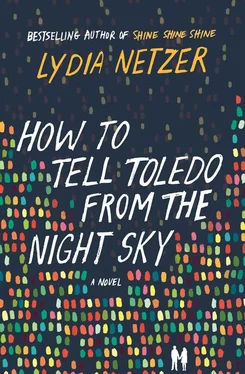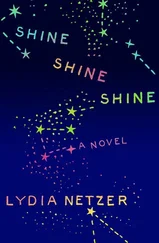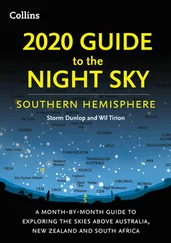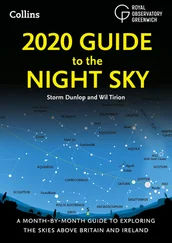“There was a faery I knew,” he sobbed. “I knew her. I miss her.”
“You were dreaming,” said his mother. “There was no one. No one. It was a dream.”
“Oh, Mommy,” he cried, “What if I’ve been badful, badful, and she never comes back?”
“George, are you looking for lost faeries?” said his father. George nodded.
“Stop it, Dean,” said his mother. “How could he possibly? Miss her? How?”
His father raised a long arm to point to the window, where the night sky was stretched.
“There are faeries up there, George,” he said, “Look, you can see them.”
* * *
George pulled off the interstate and onto the highway. His mother would be waiting, netbook case under her arm, toe tapping. As he turned on his signal to get in the left lane, he glanced into the backseat and saw another goddess.
She was sitting behind the passenger seat on the leather backseat. Her legs were splayed open and her arms were crossed loosely across her chest. She wore white running shorts, a tank top, a pair of Nikes with ankle socks, and a terry cloth headband. Her taut mouth worked a stick of gum, and George could smell it. Spearmint? Eucalyptus? Ambrosia? When he saw her he immediately slowed, pulled off the road, stopped on the shoulder. The goddess looked out the window, eyes squinting, chin sharp. She uncrossed her arms and drummed her fingers on the armrest.
“Go, go, go,” she said.
“Nah, it’s kinda bad to drive when you’re around,” said George. He tapped on the side of his head, as if to explain.
“I’m not a hallucination,” said the goddess. “I’m a goddess. Go. Go fast.”
“You’re the goddess of—” George squinted and peered off into the fields.
“The race, the race!” she said. “America, present tense, you, me. Hurry. Go. They’re beating you. They’re winning. I’m here to tell you. You need to hurry. You don’t have a lot of time.”
Her eyes flashed silver and steel, and when they met his, he felt his head go cold inside, felt his brain contract.
“Who’s winning and beating me?”
“All those other physicists, George. They’re winning! We gave you a vision. Can you not bring it to the world?”
She waved her hand around fiercely, punctuating her questions with hard gestures while the other hand kept drumming, drumming on the armrest, like a cantering horse.
“I’m capable. I’m capable,” said George. He rubbed his hand across his eyes. He turned in his seat so that he could look at her better, see her. “I’m just having a problem defining the axis of the gate. Every time I begin to map it, something doesn’t fit. I’ve got computers working on it right now. Eventually—”
“The gate was explained to you already,” snapped the goddess. She chewed her gum with her mouth open, the lines around her jaw jerking in and out of relief. Her skin was flawless. The veins popped out across the muscles of her arms and legs, rippled across her when she moved.
“Explained by the goddess of love, though,” he pointed out. “So, yes, but she’s so vague on the actual numbers, the figures, you know, the physicists like to see data. It’s kind of their thing.”
* * *
George had begun to have visions of gods when he was entering puberty. As soon as his mother had money enough, she moved to the city and bought a condo. They kept the house in the woods for his father, but his mother never went out there much. She had gone from loving it to hating it in a nanosecond, leaving George’s head spinning. He felt unmoored. “But I still love you, baby,” she said. “Come to the city with me.” George liked to sit quietly in the clearing, just as in the old days but now occasionally smoking pot, having visitations from what he first thought were the promised “faeries in the stars.” They told him they were gods and goddesses, and introduced each other to him, told him about themselves. He liked that.
When the old gods spoke to him it was with mist and fire. But when the new gods came and spoke they appeared in person, wearing clothes, sometimes earbuds, carrying diaper bags or modern weapons, sometimes preoccupied with their phones. They helped him understand the history of space, the things Pythagoras had seen, the movement of the crystal spheres, and how things on earth decay and in heaven they don’t. When they showed him, finally, a plane of symmetry on which the universe could fold and duplicate itself, they said, “This is important. This is something that no one else knows.”
“OK,” George said. He heard their voices layered over each other, and when he looked into the sky he could see the stars, static, unforgiving, speaking to him.
“There is a gate on which the universe can bend, one side to another, an axis on which it is replicated, transformed.”
“Transformed,” said George.
“Bring this message to the world,” said the gods.
“It’s there,” said the goddess of love, suddenly next to him on the grass, looking like a movie star, in a silk dress. “Believe it. On this side, one thing. On the other side, the same thing. Everything passes through the gate. Tell them. The answer isn’t symmetry. It’s asymmetry.” He knew that it was insane for him to see gods or hear them or be aware of them at all, so he must never ever talk about it. But he didn’t want to stop seeing them. They kept him from being so unendurably alone.
“The Gateway of God” became George’s research project. It was a sexy concept: There exists somewhere in the universe a plane of symmetry, so that galaxies and nebulae can be mapped back and forth across it in predictable measures. The reason this plane of symmetry had never been noticed, George now posited, was that it was not actually a plane of symmetry but a plane of asymmetry, and the relationship between the stars on one side and the stars on the other could be defined not by a simple equality but by an equation of some complexity. There was a relationship of one side to the other that was not simply one to one. Maybe a constant was involved. Maybe an exponent. He would figure it out, given enough time.
He told everyone about the gate. It exploded his career as a physicist. The only person he ever told about seeing the gods was his father, and then only once. George was a teenager, and Dean was in between trips to New York City, meeting with clients and gallery curators, and he and George were out for a hike in the woods.
“I had a chat with Athena,” George said casually, stomping along.
“Ticks out here,” said Dean. “Keep an eye.”
“I had a chat with Athena, Dad, and I’m pretty sure it was her. Really her.”
Dean stopped walking and put his hand up against a tree, wiped his forehead off on his rolled-up sleeve.
“I think I understand you, George,” said Dean. “I think I understand what you mean when you say this, but don’t go totally fucking nuts on me, son. I love you. Don’t want them to put you in an asylum.”
“I’m not nuts,” George said.
Dean got the look on his face like when he stood considering a painting, brush dripping paint onto the floor, jaw locked, breath coming fast.
“Don’t talk about this to anyone else,” his father finally said. “It sounds too crazy.”
“I’m your son,” said George, trying to laugh off the moment. “Right?”
“Don’t forget it,” said Dean.
So George kept on seeing gods, but through the visitations and the messages, he never told anyone. And he also never forgot about that one first visitor he still thought of as a faery, the one he felt he was always missing, that he had known and then lost.
He had her as a haunting memory, like a remembered dream. He felt a presence, like a shadow on the other side of the plane of symmetry, a shadow not replicated but the same. He knew it was she. If he was a star on one side of the gate, then she was a star on the other side, her position determined by the application of an equation he had not yet written. He knew that once she had been there, that he had known her, touched her, felt her, and now she was not. In his sleep, in his imagination, he would often find himself saying, “I miss her, I miss her, I miss her.” There was another side to his equation. There was another hand reaching out to his, from beyond.
Читать дальше












